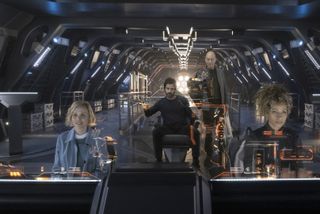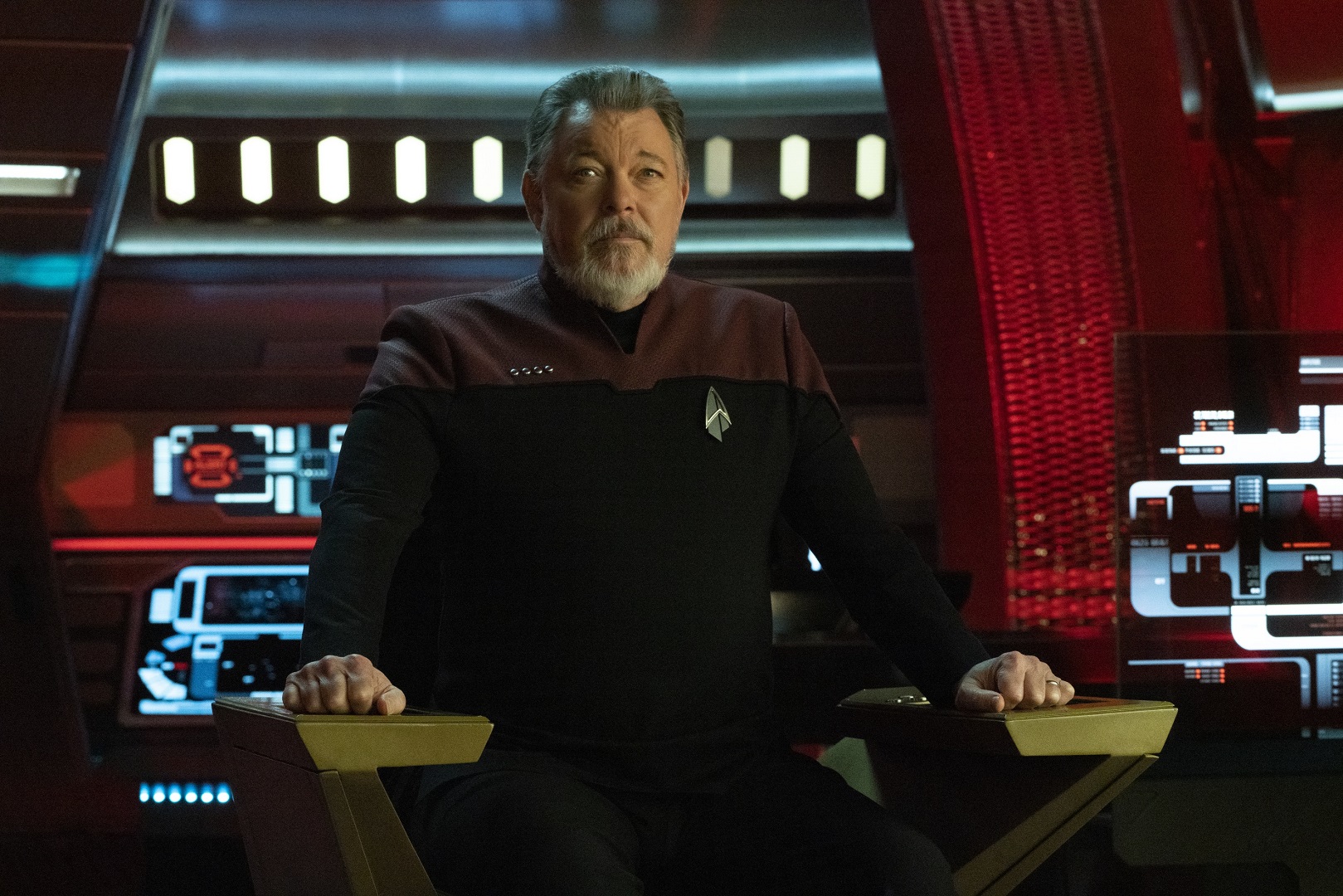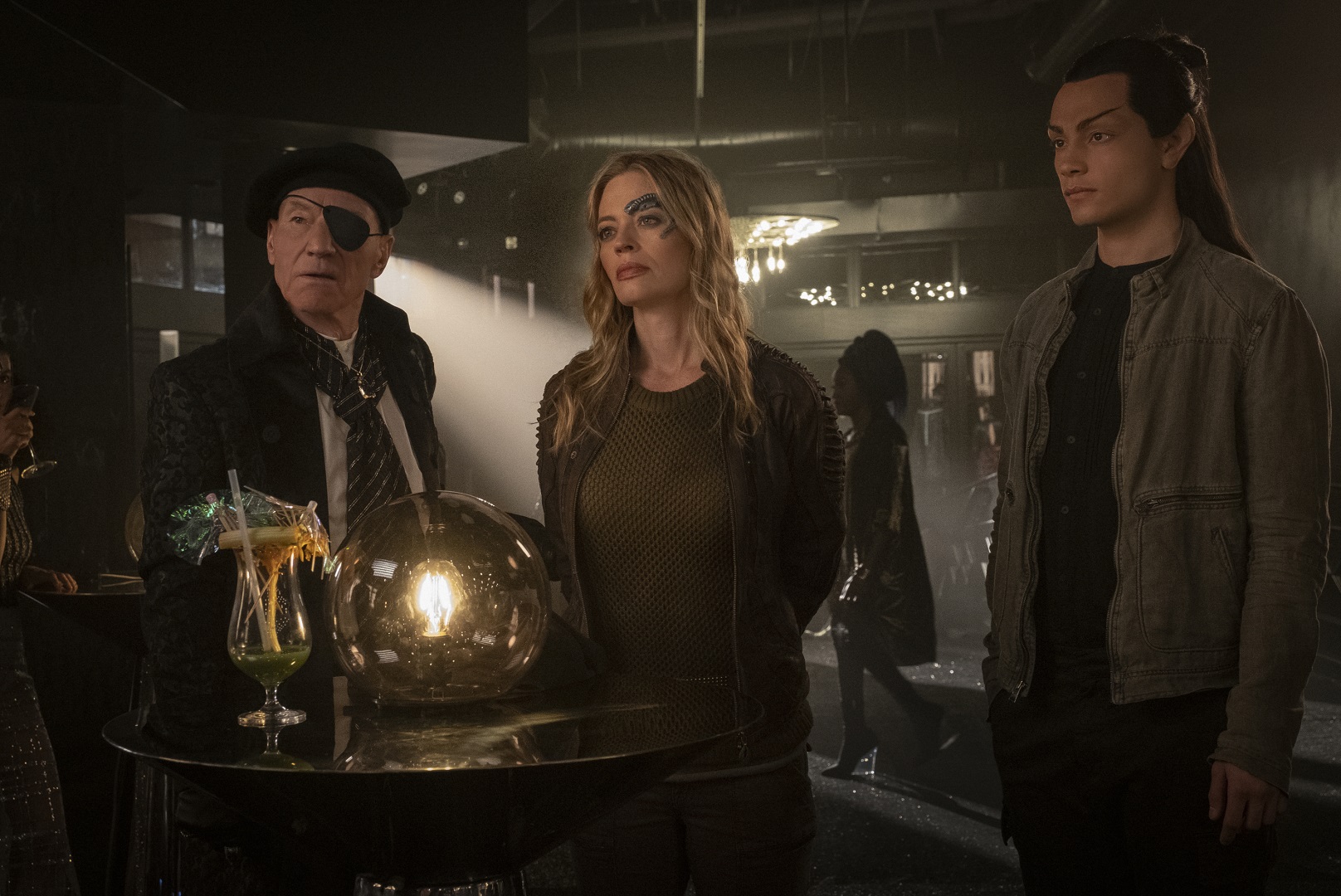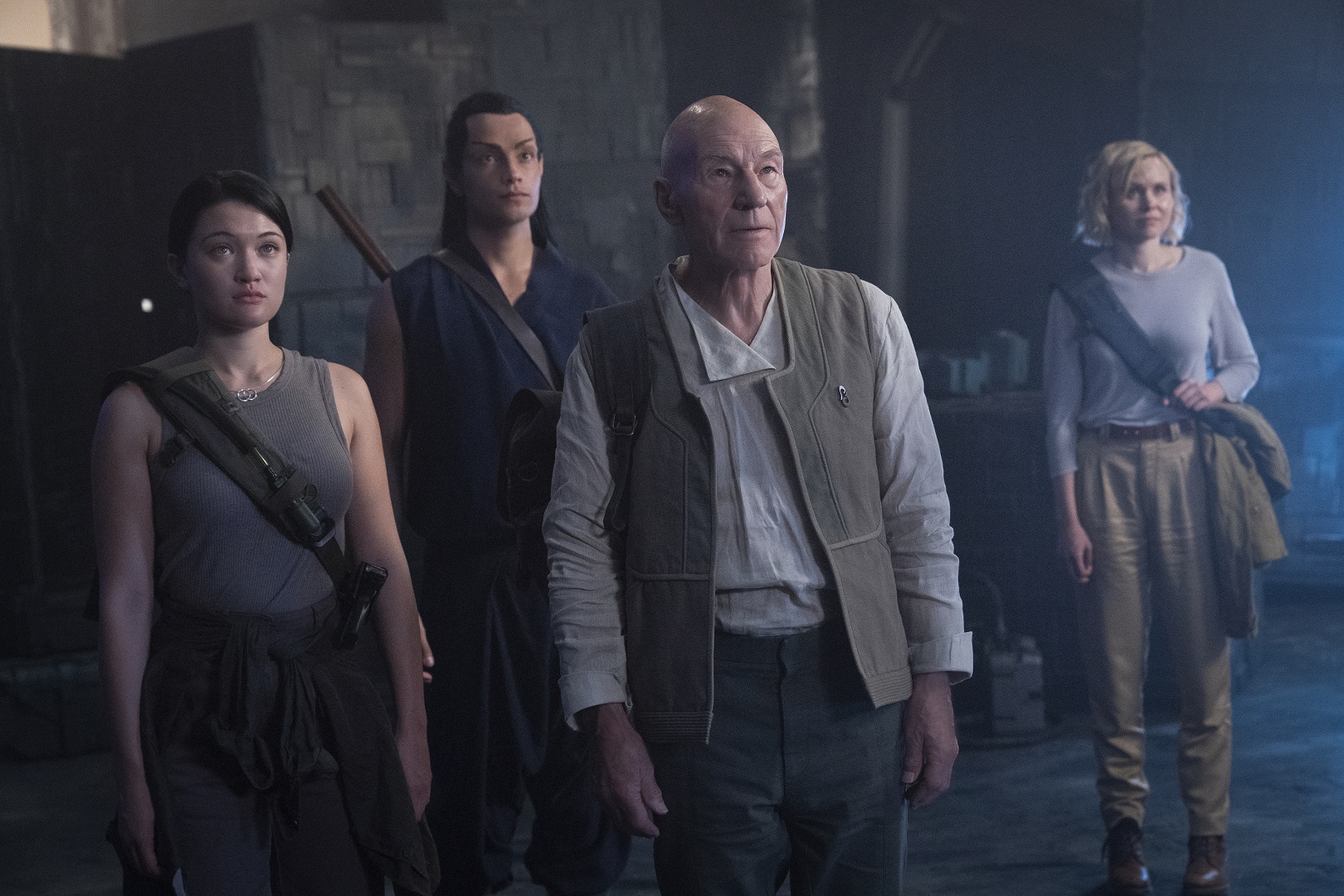Star Trek: Picard: What we loved, what we hated
Star Trek: Picard: What we loved, what we hated

The get-go season of Star Trek: Picard has come and gone, and we finally got to encounter our favorite Starfleet captain in action once more. Over the course of the show'due south 10 episodes, nosotros saw Capt. Picard recruit a new crew, rescue a friend in demand, call some old friends for aid, cut through political intrigue and grapple with issues of morality. In other words: Information technology's exactly what yous'd await from a Star Trek show.
And yet, Star Trek: Picard didn't experience very much like The Next Generation. The pacing, character development and overall narrative went in new directions that were sometimes bold, sometimes irritating, and sometimes both at once.
- Aside from Star Expedition, is CBS All Access worth it?
- A guide to Star Trek: Picard's Next Generation characters
Subsequently the beginning episode of Star Trek: Picard, I was totally onboard with the show'south unconventional take on the setting and its respect for the source cloth. Information technology as well looked a lot slicker than TNG. Only as the testify progressed, I plant myself less and less interested in Picard's "tell, don't show" storytelling and underdeveloped bandage.
More Star Trek is almost always a good thing, of course, and certain episodes of Picard were downright charming, fifty-fifty if they never quite achieved the emotional resonance they were going for. The result is an uneven show that offers more frustrations than delights for longtime fans.
Since Star Trek: Picard Season 2 is already in the works, at present is a good time to reverberate on what worked in the commencement 10 episodes, and what didn't. Perhaps, like The Next Generation, the show simply had some growing pains to work through in its start season.
This piece will contain spoilers for all of Season 1, so read at your own risk.

Star Trek: Picard: What worked
First off, it's impossible to discuss Star Expedition: Picard without likewise discussing its showrunner, Michael Chabon. The author of bestselling novels such as "The Astonishing Adventures of Kavalier & Clay" (Random House, 2000) and "The Yiddish Policeman's Union" (HarperCollins, 2007), Chabon is a lifelong Star Expedition fan and a chief of mixing pop civilization with high art. It's hard to imagine a amend person to captain a Star Expedition show.
Chabon infuses Star Trek: Picard with a seamless blend of humor, desolation and big ideas. Just perhaps the best thing Chabon brings to Picard is a fan perspective. Chabon asked withal questions that I've constitute myself asking for the past decade or more: How did Lt. Cmdr. Information's death affect Picard? What happened to the Romulans afterwards their homeworld was destroyed? Did the U.s.a.S. Voyager really cease the Borg's invasion once and for all?
Nosotros get answers to all of those questions, and more. Better even so: None of the answers feels contrived, or walks back major plot points from previous Star Expedition serial. Not every character wound in a practiced identify; non every situation got resolved. Just where Picard begins makes a great deal of sense, considering where Nemesis ended. Chabon shows incredible attention to detail and resists turning a "twenty years later" show into a wish-fulfillment fantasy.
On the other hand, I'g not fabricated of rock, and I actually did enjoy some of Picard's fanservice. I loved seeing Data in dream sequences; I especially loved the "lean dorsum and take hold of our breath" episode where Picard spends a good 40 minutes reminiscing with Capt. Riker and Cmdr. Troi, making pizza. It reminds us of why nosotros fell in love with the TNG bandage in the showtime place, and that Picard'south officers aren't just his subordinates; they're his family unit. I was also a big fan of seeing Seven of Nine in a fairly major office, every bit cross-series cameos are always a treat for longtime Expedition fans.
Some of the ship battles were fun to watch, particularly La Sirena against the old-school Romulan warbird. I nearly wish we'd gotten to come across a large-scale fleet boxing in the final episode, although I understand why information technology wouldn't have worked from a narrative perspective.

Star Trek: Picard: What didn't piece of work
Still, when I recollect back on the full feel of watching Picard, my reaction is more often than not a shrug. It happened. I wasn't usually bored while watching it. Some of its resolutions felt satisfying. Just I waited 10 episodes for the testify to coagulate into something special, and information technology never did.
While it'southward ordinarily easy to pinpoint what makes a show slap-up or terrible, information technology's much harder to put your finger on what makes a show mediocre. Still, I can elaborate on three major criticisms: Stilted storytelling, a lackluster supporting cast and a general sense that Picard covered the verbal same ground every bit the last two times the TNG story "ended."
First off, as much as I'll by and large sing Chabon'southward praises, his reach sometimes exceeds his grasp when it comes to dialogue. This is an consequence in his books, too. Some exchanges are extremely clever; other exchanges only call back they're extremely clever. When I watched characters declare exactly how they're feeling and tell endless variations on two or three quasi-jokes, I couldn't help just wonder when the next space boxing was coming. There'south no nuance or subtlety to Picard's large moral speeches; it's all most right and wrong in pretty black-and-white terms. Granted, Star Trek'south allegories are frequently extremely on-the-nose, but most other series veil them with enough sci-fi trappings to make viewers question their own preexisting views and beliefs.
Picard'south pacing, also, presents a large trouble. The master thrust of the serial — the watershed problem Picard has to solve in social club to bridge the first and 3rd acts — is finding Dr. Soji aboard the reclaimed Borg Cube. This takes six episodes to resolve — sixty percent of the show. I understand that part of prestige TV'south appeal is that we no longer have to cram full storylines into 45-infinitesimal blocks, but that is a long time to spend on the least interesting part of the story.
That also means we become less than iv episodes to build up an entire android society and a Mass Consequence-way synthetic threat from beyond known infinite. Nosotros learn, out of nowhere, that Soji had 2 more twins and that Information's creator had a hitherto-unmentioned biological son. Riker gets to command an entire Starfleet battalion, despite never rising higher up the rank of captain. Why does any of this happen? None of it is inconceivable, only none of it is actually justified, either. It seems to happen considering the plot needs it to, which is most always the worst kind of storytelling. Run into too Picard'southward tragic, inspiring death — and his meaningless resurrection five minutes afterwards.
Then there'southward the supporting bandage, about whom I could never bring myself to care. Raffi, Rios and Jurati seem to have virtually ii personality traits apiece; Elnor has only one. We learn their backstories in huge exposition dumps, and their character arcs take them all the way from "distrusting Picard" to "trusting Picard." I sympathise why it would have been unsatisfying to but use the whole TNG crew once again, merely I would rather accept had one or two fully adult characters than four or five wide strokes. (I liked Narissa, though. She seemed to exist the only 1 having fun.)
Picard'due south biggest shortcoming, yet, is that it didn't accept any emotional resonance — or, if it did, it was exactly the same emotional resonance we already experienced in All Skilful Things… and Nemesis. Aye, Picard is older and frailer, and the remainder of the world has moved on. Yes, Data dies without ever fully completing his quest to become more homo. Yes, the Federation turned its back on old allies out of political expediency. But nosotros already experienced all of this in other TNG episodes and movies. I'm not sure what makes this show a amend ending for Picard and Data than the last two TNG finales.

Star Trek: Picard: Lesser line
I keep reminding myself that TNG itself had a mostly throwaway first flavour, followed by a much-improved second, and a best-in-form third. I had hoped that with seven seasons and iv movies of TNG behind it, Picard could hitting the ground running, only it didn't. The evidence was entertaining in fits and starts, but it never actually felt cohesive.
Equally The Rise of Skywalker did for Star Wars, Star Trek: Picard fabricated me wonder why we continue coming back to the same onetime stories in a fictional universe that has the potential for so much more. It's comfort nutrient, sure, but sometimes condolement nutrient isn't all that nutritious.
Source: https://www.tomsguide.com/opinion/star-trek-picard-loved-hated
Posted by: stovalldrome1986.blogspot.com


0 Response to "Star Trek: Picard: What we loved, what we hated"
Post a Comment